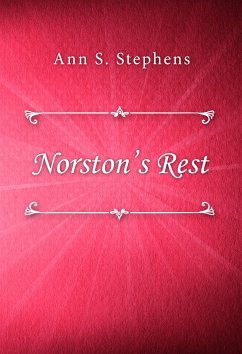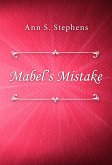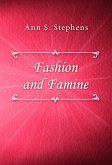In the highest grounds of a park, almost an estate in itself, stood one of those noble old mansions that are so interwoven with the history of mother England, that their architecture alone is a record of national stability and ever-increasing civilization, written out in the strength of stone and the beauty of sculpture. This building, however grand in historical associations, was more especially the monument of one proud race, the Hursts of “Norston’s Rest.”
Generation after generation the Hursts had succeeded in unbroken descent to “The Rest” and its vast estates since the first foundation stone was laid, and that was so long ago that its present incumbent, Sir Noel Hurst, would have smiled in derision had the Queen offered to exchange his title for that of a modern duke.
Sir Noel might well be proud of his residence, which, like its owners, had kept pace with the progress of art and the discoveries of science known to the passing generations; for each had contributed something to its gradual construction, since the first rough tower was built with the drawbridge and battlements of feudal times, to the present imposing structure, where sheets of plate glass took the place of arrow slits, and the lace-work of sculpture was frozen into stone upon its walls.
This glorious old park, like the mansion it surrounded, brought much of its antique beauty from the dead ages. Druid stones were to be found beneath its hoary old oaks. Its outer verge was wild as an American forest, and there one small lake of deep and inky blackness scarcely felt a gleam of sunshine from month to month. But nearer the old mansion this wilderness was turned into an Eden: lawns of velvet grass—groves where the sunshine shone through the bolls of the trees, turning the grass under them to gold—lakes starred half the summer with the snow of water-lilies—rose gardens that gave a rare sweetness to the passing wind—shadowy bridle-paths and crystal streams spanned by stone bridges—all might be seen or guessed at from the broad terrace that fronted the mansion.
Generation after generation the Hursts had succeeded in unbroken descent to “The Rest” and its vast estates since the first foundation stone was laid, and that was so long ago that its present incumbent, Sir Noel Hurst, would have smiled in derision had the Queen offered to exchange his title for that of a modern duke.
Sir Noel might well be proud of his residence, which, like its owners, had kept pace with the progress of art and the discoveries of science known to the passing generations; for each had contributed something to its gradual construction, since the first rough tower was built with the drawbridge and battlements of feudal times, to the present imposing structure, where sheets of plate glass took the place of arrow slits, and the lace-work of sculpture was frozen into stone upon its walls.
This glorious old park, like the mansion it surrounded, brought much of its antique beauty from the dead ages. Druid stones were to be found beneath its hoary old oaks. Its outer verge was wild as an American forest, and there one small lake of deep and inky blackness scarcely felt a gleam of sunshine from month to month. But nearer the old mansion this wilderness was turned into an Eden: lawns of velvet grass—groves where the sunshine shone through the bolls of the trees, turning the grass under them to gold—lakes starred half the summer with the snow of water-lilies—rose gardens that gave a rare sweetness to the passing wind—shadowy bridle-paths and crystal streams spanned by stone bridges—all might be seen or guessed at from the broad terrace that fronted the mansion.









